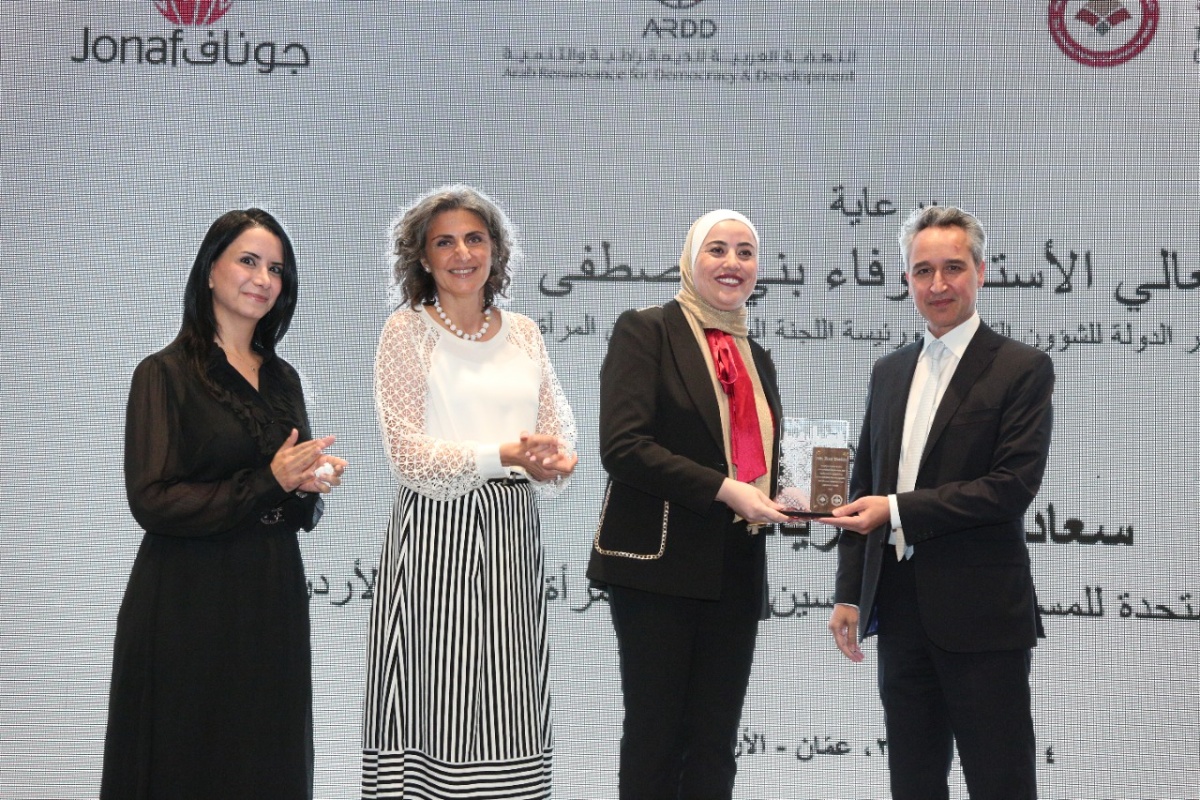In appreciation of his efforts in supporting the Jordanian government, civil society, and the National Women Machinery in the efficient implementation of the national vision for gender equality and women’s empowerment, and Under the Patronage of the State Minister for Legal Affairs and President of the Committee of the Pan-Arab Women’s Parliamentary Commission, Wafa Bani Mustafa, a farewell party for Ziad sheikh, UN Women’s Country Representative for Jordan, was held by The Jordanian National Commission For Women, Jordanian National Coalition for the Implementation of UNSCR 1325 on Women, Peace and Security, the Arab Renaissance for Democracy and Development (ARDD), and the Jordanian National NGOs Forum (JONAF).
Throughout his years of work in Jordan, Sheikh supported and prioritized the agenda of humanitarian and development work and women-led organizations. He believed in Arab communities’ ability to realize development and modernity, supported the implementation of the National Action Plan for the Implementation of UNSCR 1325 on Women, Peace and Security, and promoted the values of freedom, equality, civil rights, and rule of law.
At the farewell party held on Sunday 24 July 2022 at Hyatt Amman hotel, Bani Mustafa stressed the importance of continuous communication, collaboration, and coordination among partners and UN agencies to support women and realize gender equality in the Middle East.
Noting Sheikh’s qualities of persistence and objectivity, and his connection with the civil society, Bani Mustafa commended Sheikh’s efforts and support to the Inter-Ministerial Committee for Women’s Empowerment which contributed to the improvement of women’s economic situations.
Dr Salma Nims, Secretary-General of the Jordanian National Commission for Women, indicated the consensus on Ziad Sheikh’s legacy and impact in Jordan, as well as his professionalism and integrity.
Samar Muhareb, CEO of Arab Renaissance for Democracy and Development (ARDD) treasured the international support to Jordan and its institutions and civil society. She noted the party’s representation of the official partnership among the government, civil society, and the coalition.
Muhareb pointed out Sheikh’s participatory approach in working with civil society organizations, leading to the birth of strong coalitions adopting a national plan responsive to the community’s various groups.
Sheikh is moving on to work with UN Women’s Executive Director, Sima Bahous. After expressing his appreciation, Sheikh reaffirmed the importance of carrying on the humanitarian and development work and the promotion of women’s participation on all levels.
Noting Jordan’s commitment to handling its issues and accurate progression towards development and change, he stressed the importance of dialogue between local and international partners.
The UN Security Council adopted Resolution 1325 in 2000, laying out four central engagement pillars: prevention, participation, protection, and relief and recovery.
Sheikh holds a master’s degree in Political Science and Governance from SOAS University of London and a bachelor’s degree in economics from the University of Sussex. Prior to his current position, Sheikh served as the UN Women Representative in Nepal between 2012 and 2016.
Sheik assumed the position of UN Women’s Resource Mobilization Lead in New York between 2010 and 2012, held the position of deputy country director of the United Nations Development Fund for Women in Afghanistan between 2008 and 2010, and from 2003-2007, he designed and implemented global, regional, and country level policy advocacy strategies and campaigns for girls’ education and maternal health with UNICEF, including with UNICEF India.


